Carolina STEM Challenge® kits for middle and high school classrooms offer students real-world design challenges in an exciting tournament-style format. These kits are designed to help you integrate STEM into your current curriculum while addressing the Next Generation Science Standards* (NGSS), including science and engineering practices.
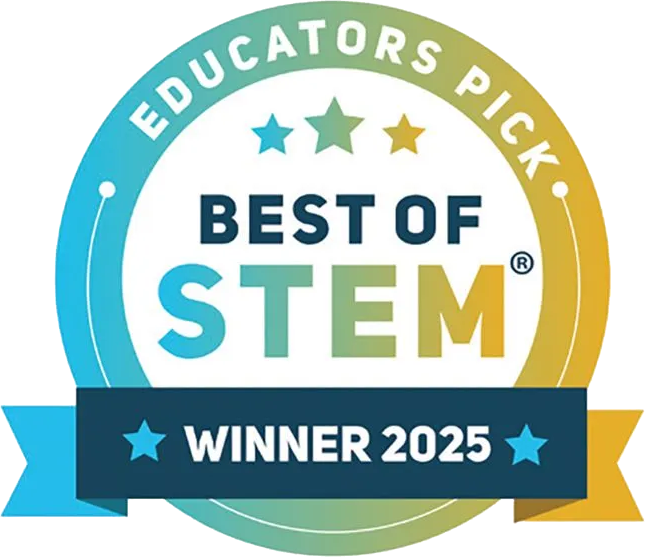
Why STEM Challenge?
One of our goals at Carolina is to continuously improve our products to meet the needs of teachers and ensure student success. We listened to feedback from teachers to enhance our entire STEM Challenge line. The teacher’s manuals are designed to provide greater support and digital resources are included that bring added value to these exciting kits.
Full-color teacher's manuals
The teacher’s manuals are full-color, containing helpful illustrations and photos. All illustrations and photos are offered digitally as whiteboard resources you can use in classroom presentations.
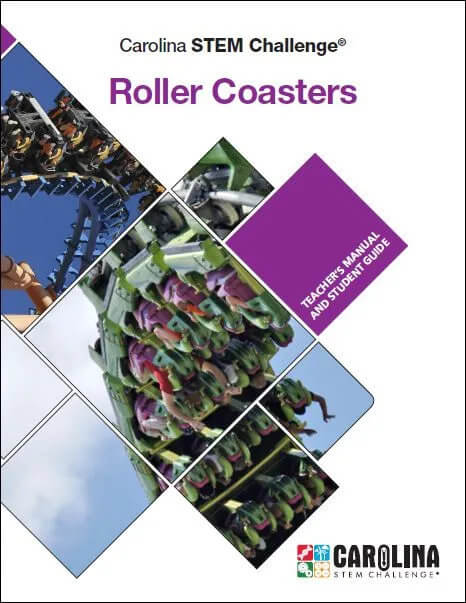
Correlation to the Next Generation Science Standards* (NGSS)
When you open a new manual, you will quickly find the NGSS correlation listed, including the performance expectations and dimensions addressed in the activities. Each kit is designed to build understanding of important science concepts as students engage in science and engineering practices.
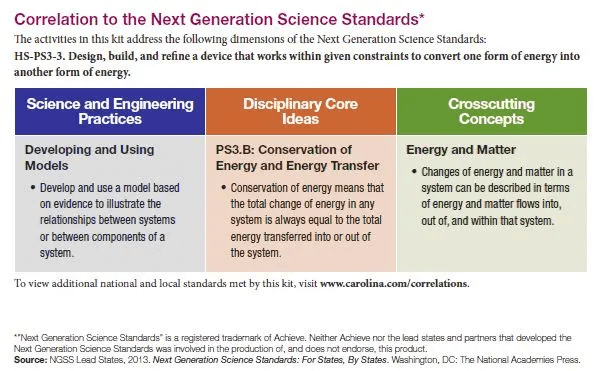
NGSS correlation for Carolina STEM Challenge®: Roller Coasters Kit, Item #750036
Valuable digital resources
Each STEM Challenge kit comes with a 1-year subscription to digital resources. This subscription includes a digital teacher’s manual, student guide copy master, fillable answer sheets that can be printed or sent electronically, editable assessment questions, and whiteboard resources. Additional digital resources may include set up and procedural videos, digital activities, and digital assessments. Look for the list of digital resources included with your kit in the digital resources chart.
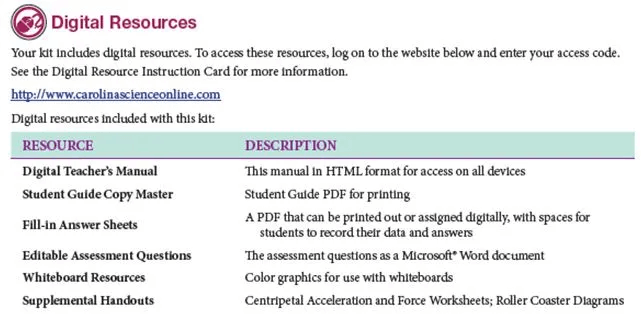
Support for teaching engineering in your classroom
The activities in each STEM Challenge kit are designed to support you in teaching science and engineering practices in your classroom. Each challenge starts with an engineering problem and guides students through the engineering cycle as they work to solve the problem through a design challenge. These activities will motivate your students to apply important science concepts.
Teaching the Engineering Cycle
In every Carolina STEM Challenge® activity, students practice the engineering cycle in order to meet certain performance criteria.
Research – Students are presented with an engineering problem or technical challenge, highlighting and identifying science concepts and skill relevant to potential solutions.
Prototype – Students demonstrate or construct a prototype device or system that will serve as the basis for further testing and study. A prototype is a preliminary model that is used to develop subsequent models of a device or system.
Design Challenge – Students brainstrorm ways to modify their prototype to meet the given challenge. Then, they implement and test their designs, making modifications and improvements on the basis of their observations and data. Design Challenge Scoring Rubrics are provided for judging the success of each group’s design and for comparing the designs of different teams.
Assessment – Students reflect of what they learned and present their findings to the class. A Grading Rubric is provided for evaluating each teams’s performance on the assigned tasks.
Information is easy to find
The manuals feature parallel page spreads with the student guide on the left and point-of use teacher information on the right.
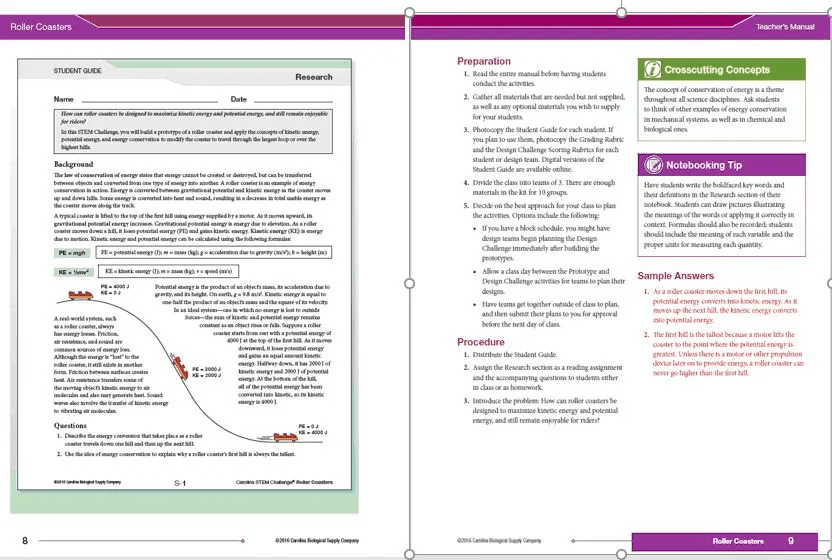
Integrating STEM into your classroom has never been easier
Carolina will continue to expand the line of STEM Challenge kits for life sciences, physical sciences, chemistry, and environmental science. Our current lineup includes:
Visit Carolina.com/stemchallenge to learn more about these kits—and new ones that are on the way.
*Next Generation Science Standards® (NGSS) is a registered trademark of Achieve. Neither Achieve nor the lead states and partners that developed the Next Generation Science Standards were involved in the production of, and do not endorse, these products.
Scott Eddleman
Director of Product Development and Innovation
Updated October 2025
About The Author
Carolina Staff
Carolina is teamed with teachers and continually provides valuable resources–articles, activities, and how-to videos–to help teachers in their classroom.


